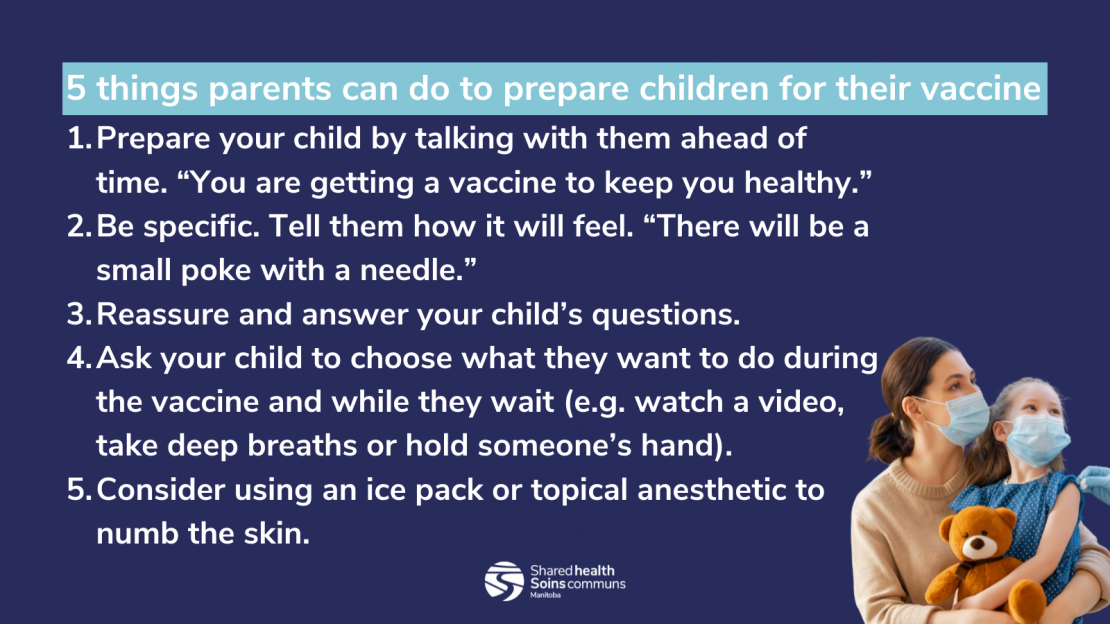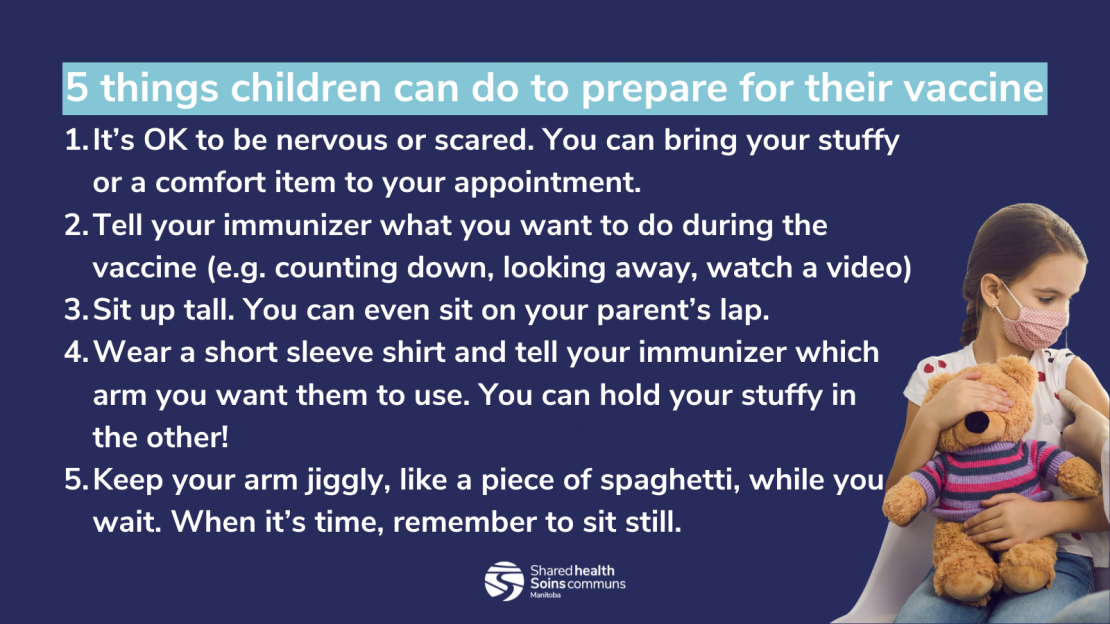Immunizations are one of the best ways to protect you, your family and your community. Your baby will start getting immunizations at two months of age. Depending on where you live in Manitoba, your health-care provider or public health nurse will give your baby their immunizations. If you do not have a health-care provider, use the Family Doctor Finder.
Immunizations:
- are safe and effective
- protect against diseases caused by germs such as bacteria or viruses
- are also known as a shot, needle, booster, vaccine or vaccination
What vaccines should my child get?
See Routine Immunization Schedules – Province of Manitoba for the most up to date information
Some vaccines need more than one dose to:
- Build immunity to prevent the disease.
- Boost immunity that can weaken over time.
- Protect against germs that change over time, like the flu.
Immunization Records:
You can get your immunization record by submitting a request via the e-form https://forms.gov.mb.ca/immunization-update-request/
You may also be able to get a copy by:
- Contacting your local public health office,
- Checking if your local medical clinic or physician’s office can provide them to you, or
- Asking at a local nursing station or health centre.
If your child has missed any of their vaccines, see Immunization Schedules for Individuals NOT Previously Immunized – Province of Manitoba.
All people in Manitoba who are six months old and older are encouraged to get their free flu vaccine and keep up with all recommended shots. You can get the flu vaccine at the same time as other vaccines, including the COVID-19 vaccine. This vaccine is especially important for people who are at higher risk of getting COVID-19 or becoming very sick, as well as their caregivers and close friends and family.
Even if you’re not at higher risk, you can still get the COVID-19 vaccine.
For COVID-19 immunization information visit: COVID-19 – Province of Manitoba and Protect Our People MB.
Preparing for Your Child’s Vaccine Appointment


Did you know?
- Breastfeeding/chestfeeding your baby while they are being immunized may help soothe them.
- Holding your child close and distracting them with singing or talking can also help.
- You can try to distract an older child with toys such as bubbles, pop-up books, puppets or rattles.
- For more tips to help your young child cope with immunizations, click here.


